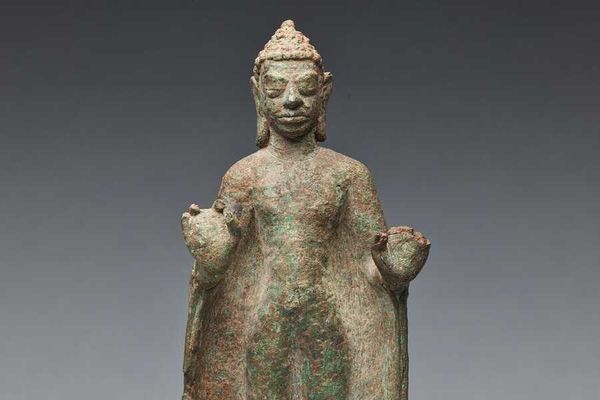Pancreatic cancer kills more people in the United States than breast cancer—and studies suggest it could become the country's second leading cause of cancer death around 2020. That's why early detection is critical.
The pancreas sits behind the stomach, which can easily mask smaller tumors during physical exams. When paired with vague unexplained symptoms, most patients aren't diagnosed until the disease has progressed into its later stages. The five-year survival rate for pancreatic cancer is only 9 percent, so recognizing the symptoms can help with getting an earlier diagnosis.
If you are experiencing one or more of the symptoms outlined below, we urge you to speak to your doctor immediately.
Jaundice
Jaundice is a common symptom of pancreatic cancer that causes yellowing of the skin and/or eyes. The culprit is excess bilirubin—a component of bile—in the blood. A tumor in the head of the pancreas can block bile flowing from the gallbladder into the small intestine. People with jaundice may suffer itchy skin, dark urine and light or clay-colored stools. A common treatment is inserting a stent to keep the bile duct open. In some cases, a biliary bypass surgery can be performed to bypass the blocked bile duct.
Diabetes
Research studies suggest new-onset diabetes in people over the age of 50 may be an early symptom of pancreatic cancer. Diabetes is a condition in which the body does not produce or properly use a pancreatic hormone called insulin. Insulin helps the body use glucose efficiently. People with well-controlled diabetes who experience a sudden change in blood sugar levels may also be showing signs of pancreatic cancer.
Bloating
Patients with advanced pancreatic cancer often experience accumulation of fluid in the abdomen. This is known as abdominal bloating, or ascites. It's caused by an irritation in the abdominal lining as the cancer spreads. The abdominal lining produces a buildup of fluid to relieve the irritation, which swells up and distends the belly. Fluid can also accumulate when cancer spreads to the liver or portal vein (the vein that carries blood to liver). This increases blood pressure and weakens circulation. Symptoms of ascites include abdominal swelling, discomfort and increased waist size, difficulty breathing, decreased appetite, weight gain, fatigue and constipation.
Digestive problems
A host of digestive problems, including poor appetite, indigestion and nausea, can surface when a pancreatic tumor presses against the stomach or the first portion of the small intestine. Digestive symptoms also appear when the pancreatic duct is blocked or when there's a change in the amount of pancreatic enzymes produced. Treatment includes dietary changes and pancreatic enzyme products.
Changes in stools
Diarrhea and constipation often appear in people with pancreatic cancer. In these cases, diarrhea stems from a lack of pancreatic enzymes in the intestine, which leads to malabsorption as undigested food passes quickly through the tract. Constipation is often experienced by people who take pain medications, as it slows the passage of food through the intestines. These symptoms can be alleviated through changes in diet and additional medications.
What To Consider After Diagnosis
If you or someone you know has been diagnosed with pancreatic cancer, pursuing treatment and staying healthy take precedence. In the fight against pancreatic cancer, clinical trials often provide the best treatment options, and they give patients early access to cutting-edge treatments that can lead to progress in research, improved treatment options and better outcomes. Clinical trials are research studies that investigate new treatments or new combinations of treatments. The Pancreatic Cancer Action Network strongly recommends clinical trials at diagnosis and during every treatment decision.
The Pancreatic Cancer Action Network maintains the most comprehensive and up-to-date database of pancreatic cancer clinical trials available in the United States. You can speak to a Patient Central Associate for a personalized clinical trials search, or use their free online Clinical Trial Finder to start your own search for clinical trials that match what you need. You can learn more about clinical trials at pancan.org/clinicaltrials.





















